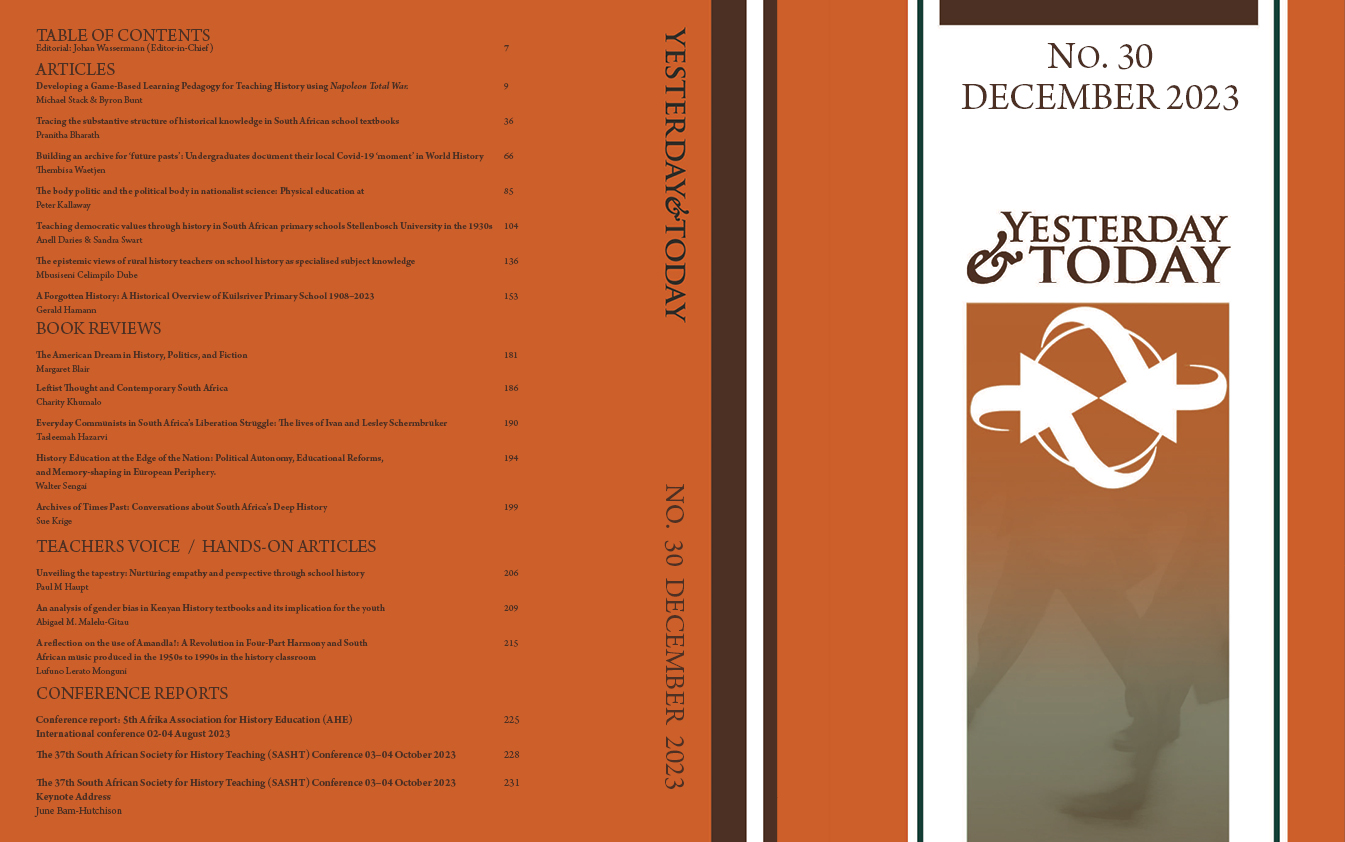Building an archive for “future pasts”
Undergraduates document their local Covid-19 ‘moment’ in World History
DOI:
https://doi.org/10.17159/2223-0386/2023/n30a4Keywords:
Digital humanities, Historical thinking, Memory, Archival turn, Source work, Decolonizing history, Covid-19, Remote teachingAbstract
A substantial body of history teaching scholarship links student archival engagements and primary source work to various desirable educational outcomes, among them an enhanced capacity for historical thinking and imagination. A related scholarly literature considers the interface between pedagogy and public memory-making. This article enters and links these points of discussion by reflecting on a collaborative classroom project of digital archive-building, using the online, Dublin Core-complicit platform Omeka. At the University of Johannesburg, during the first six months of 2021, first-year students in an online world history classroom produced, submitted and categorised a body of primary sources – both textual and visual. These submission reflected their own, ongoing experiences of Covid-19 and of lockdown policies. They used photographs and wrote in home languages to convey the disruptions, innovations, hardships, and resiliences felt as young people within diverse lifeworlds. Aligned to photovoice methodologies, the exercise promoted a reflection of historical consciousness in two ways: firstly, by situating the pandemic of the present within global history more broadly; and, secondly, by considering “future pasts” as a politics of memory, research and representation. The article describes the production of the archival database, “Joburg21”, and considers the pedagogical challenges and rewards of building a digital “archive for the future”.


